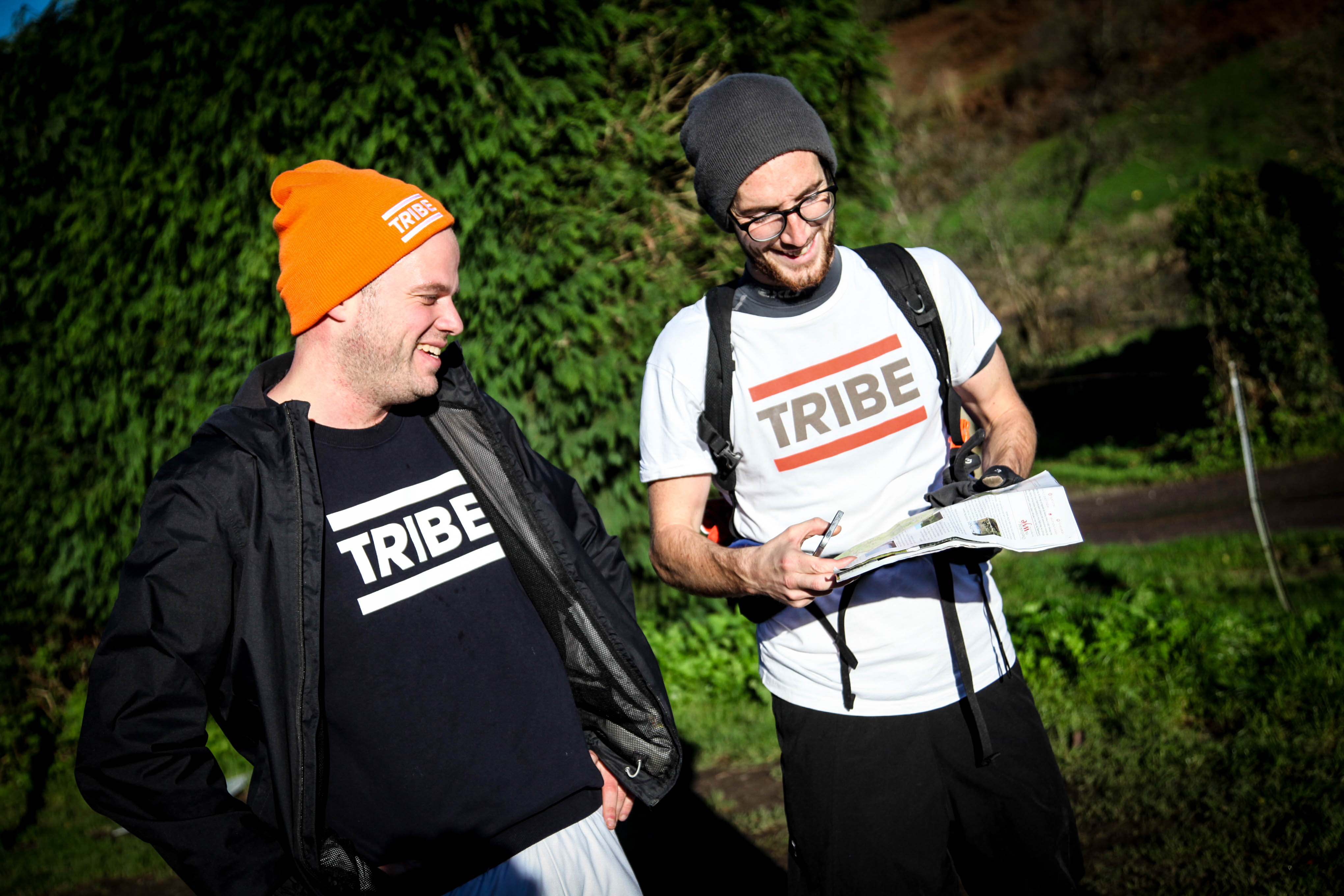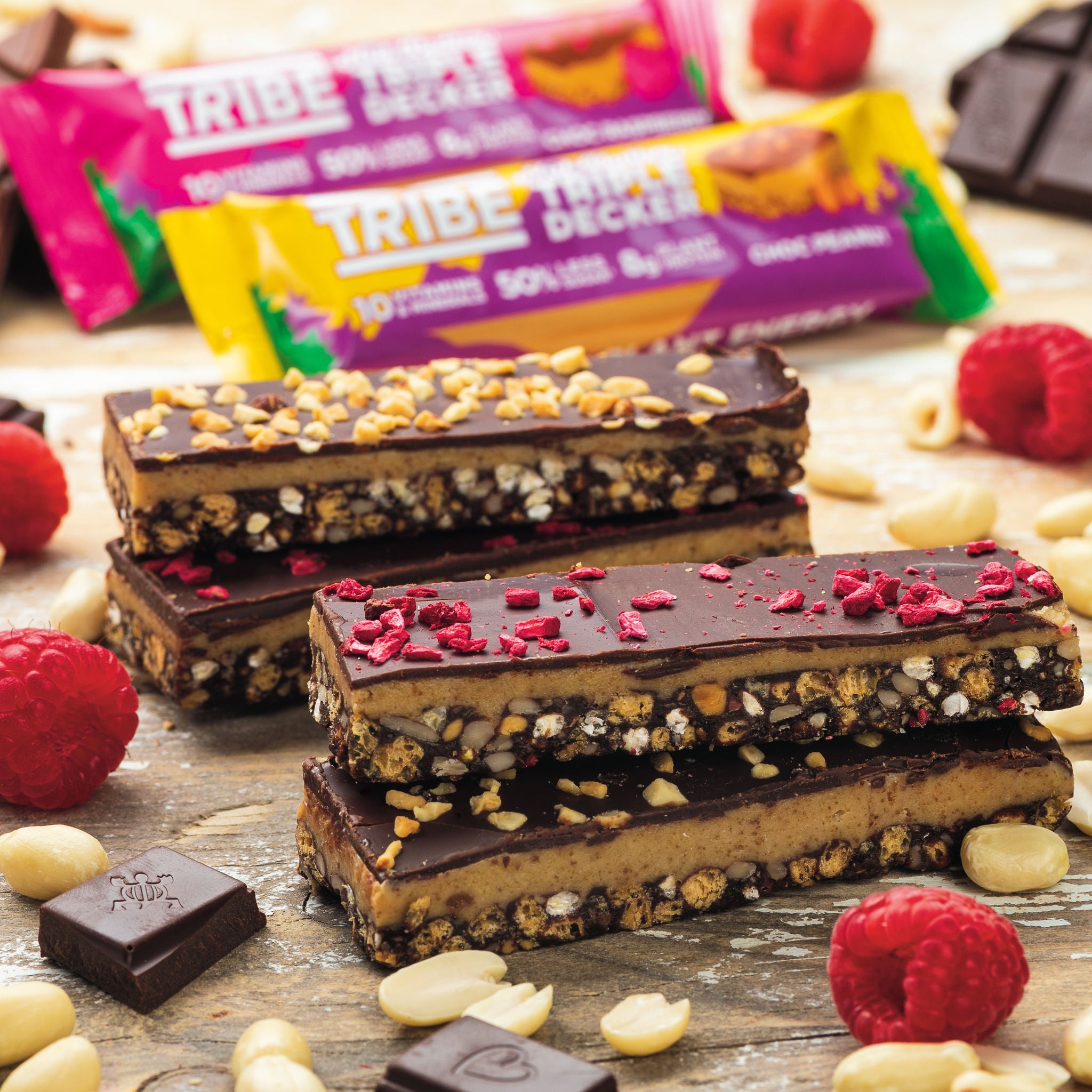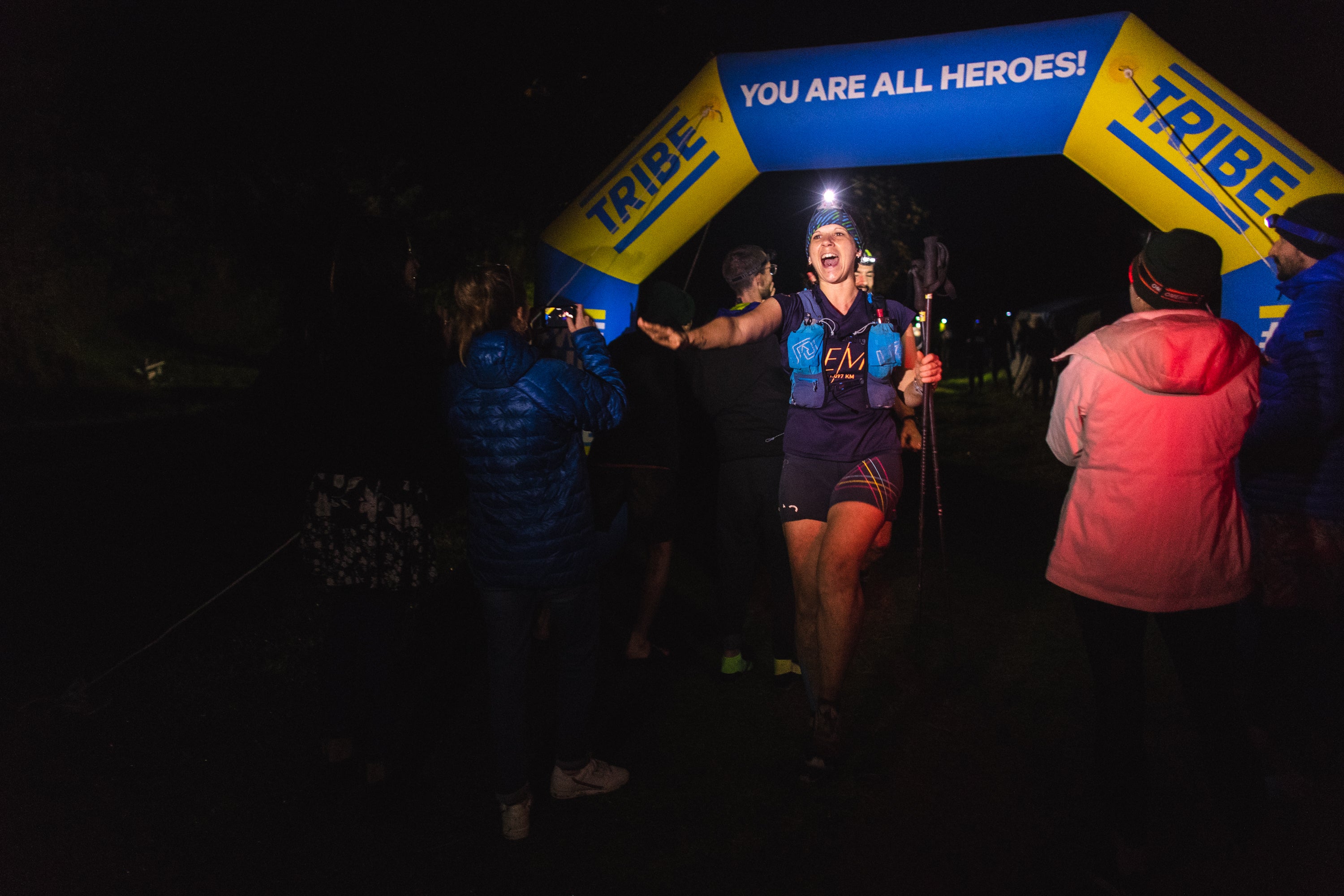How Tribe is fighting to end modern slavery with ultra marathons and plant-based nutrition
Tom Stancliffe and Rob Martineau speak to Sean Russell about how their consumer brand is helping the fight against one of society’s most monstrous issues


It started at the 251km Marathon des Sables in Morocco in 2012. Three corporates from the City met while training to run six marathons back to back through the desert and realised they all wanted to do something more meaningful with their lives. After many more kilometres and events, Tribe was born, but back then, in Morocco, they were just young men with few obligations and a desire to push themselves to the limit. Then they started finding ways to push other people to the limit and, most importantly, raise money to end modern slavery.
“We loved the challenge and adventure and asked ourselves how we could top a marathon in the desert,” says Tom Stancliffe, one of Tribe’s co-founders, over Zoom from their offices in London. “The idea was, let’s see if we can do 1,000 miles. It felt natural, in a very unhinged way, to keep escalating and pushing ourselves further and obviously, the fundraising element was massive.”
The answer was Run For Love. In 2013, Stancliffe, Rob Martineau and Guy Hacking set out on a 1,000 mile (1,600km) run from Ukraine to Croatia, raising £240,000 to fight child trafficking in the process and were joined at various times by some 250 people. From then on, Run For Love has become the yearly monument of Tribe’s events list – to which anyone can sign up – taking place on different routes every year.
“Suddenly we were 15, then 100, then 250 runners,” says Martineau, an ex-lawyer who also wrote a book called Waypoints, about walking 1,000 miles through Ghana, Togo and Benin. “Run For Love grew from being a personal challenge for the three of us to something so much bigger, a kind of Forrest Gump group of runners, and what was powerful about the project was seeing the group come together for the charity.”
All this training and running also taught the friends something else; they really didn’t want to consume the synthetic nutrition products on the market at the time. Most of the gels and bars and drinks were hard on the belly and not enjoyable, especially in the quantities they had to consume them to finish the ultra-marathons they were running. They thought there must be a way to have all-natural ingredient, plant-based nutrition that was also delicious. And so, between 2014 and 2015, the friends began to think about what they could do.
Although it is a nice community challenge, it also ridiculously, brutally difficult
“We found ourselves in these beautiful, mountainous, wild places holding really synthetic products,” says Stancliffe, “and we just had this core belief that natural, plant-based products can and should be what you have on a mountainside and ultimately taste much better – and we wanted to have a massive impact on modern slavery. We saw brands such as Toms and Innocent showing that a great way to have an impact on an issue was through a consumer brand. All of those ideas came together into Tribe.”
Before becoming a lawyer with Allen & Overy, Stancliffe worked for the Centre for Social Justice, a think tank trying to solve social issues. This, he says, immersed him in the issues surrounding modern slavery. It was something Martineau admits he knew very little about before meeting Stancliffe. Surely this was a problem that had been eradicated, but the truth is far from that.
Slavery is defined as the exploitation of people for financial gain, and there are currently more victims than ever before, both in the UK and globally. According to the 2018 Global Slavery Index, there are 40.3 million people trapped in slavery worldwide, with 136,000 estimated to be in the UK. In 2020, the Home Office said that 10,613 victims were identified, while thousands remain unidentified. It also says that the cost of modern slavery to the UK is between £3.3bn and £4.3bn.

And so, in 2016, Tribe was set up. Stancliffe, Martineau and Hacking left their corporate jobs and dedicated themselves to something they felt was far more impactful.
Since their first Run For Love event, Tribe has provided more than £1m to the fight against modern slavery. As well as raising money from the endurance events, 1p from every Tribe nutrition product is donated to the Tribe Freedom Foundation, the charity wing of the business.
The products fall into three categories: snacks, breakfasts, and shakes. Broadly this translates to triple-decker bars, cold-serve breakfast oats, and protein shakes, all in various flavours, including fruits, nuts and chocolate. They are entirely natural and all plant-based, and they taste really, really good. Nutritional, performance foods seem so often to cut corners on taste, but not so with Tribe, and this is something the founders are proud of and believe to be very important. “Everything is built to create delicious plant-based nutrition,” says Martineau.

With the coming of the pandemic came an end to mass participation events and travel, and so Run For Love had to pause along with the rest of the world. But people didn’t stop running. Instead, more people than ever took up the sport and sought healthier lifestyles. And Tribe became the UK’s fastest-growing plant performance brand, with growth of 75 per cent since 2018. Its products are also in 5,000 distribution points, including Sainsbury’s, Morrisons and WHSmith. The community has grown to more than 100,000 people and shows no signs of slowing. Thousands take part in Tribe Strava challenges every month.
Now, as something closer to normality approaches, Tribe is preparing for its fourth Run For Love event, Race to the Golden Island, a 260km run across six days in Croatia.
“The core ideal of it is true to the first Run For Love,” says Martineau. “It’s about three things: having an amazing adventure by pushing yourselves to the absolute limit, coming together as a community, and fundraising for a vital cause.”

Next year’s event will take the runners through national parks and includes an 80km through-the-night stage. It’s hard, and it’s supposed to be hard. Tribe supports you through every step of the way, helping with training and, of course, nutrition, all of which is covered by the sign-up fee.
“Although it is a nice community challenge, it is also ridiculously, brutally difficult,” says Stancliffe. “Only about 40 per cent of competitors did the whole event last time. But it sounds worse than it is, and people love that element of the impossible challenge and, for those who didn’t finish, they still felt like it was an amazing challenge to have taken on.”
There is also a half marathon in Croatia and a hiking route if the 260km seems a bit too much.
It’s not just Run For Love, however. Tribe is also hosting a relay event across Scotland on 24 June 2022, the summer solstice, where teams of four or eight can each take a stretch coast to coast across 218km from Rhu to Dunbar, above Glasgow and through Edinburgh.
Everything Tribe does is to raise awareness and funds for modern slavery; it is the brand’s main purpose. As the company moves forward, they are hoping to proactively help keep victims of modern slavery safe and are launching projects to help victims secure their own bank accounts and also to help prevent slavery from being involved in the supply chains of small and mid-size enterprises.
“How can we all be the best we can be? If there’s this hidden thing happening, how can we take it out of the shadows and do our part?” says Stancliffe. “It’s really amazing for us to feel both Tribe and the Foundation are growing exponentially in terms of the impact we’re having.”




Join our commenting forum
Join thought-provoking conversations, follow other Independent readers and see their replies
Comments